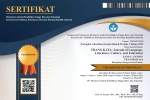The Barzanji Tradition in The Context of Cultural Studies: Exploring The Debate Between Sunnah and Bid'ah
DOI:
https://doi.org/10.54923/jllce.v4i2.68Keywords:
Barzanji, Bid'ah, SunnahAbstract
This article discusses the role of the famous Islamic literary work Barzanji in the context of cultural studies about concepts such as tradition, sunnah, and heresy in Islam. The Barzanji is a work that recounts the life of the Prophet Muhammad (PBUH) with awe and affection and has become an integral part of religious traditions in many Muslim-majority countries. This article also aims to examine the importance of understanding tradition and sunnah in diverse cultural contexts, as well as addressing the potential issue of heresy in religious practices related to the use of Barzanji. This research uses a qualitative method with a cultural studies approach. The cultural studies approach was chosen because this research wants to examine the complex interaction between Barzanji and Muslim society. Overall, this study concludes that Barzanji plays an important role in upholding and strengthening religious identity in certain Muslim communities, especially through its recitation in religious events. That is the context of religious practice, change or innovation (bid'ah) is acceptable if it conforms to the basic principles of the Sunnah. That is, there are situations where bid'ah can be used to enhance or perfect the understanding and practice of the Sunnah. In this perspective, the concepts of sunnah and bid'ah do not have to be seen separately but can complement each other in the context of religious interpretation and practice.
Downloads
Downloads
Published
How to Cite
Issue
Section
License
Copyright (c) 2024 Didi Jubaidi

This work is licensed under a Creative Commons Attribution-ShareAlike 4.0 International License.





